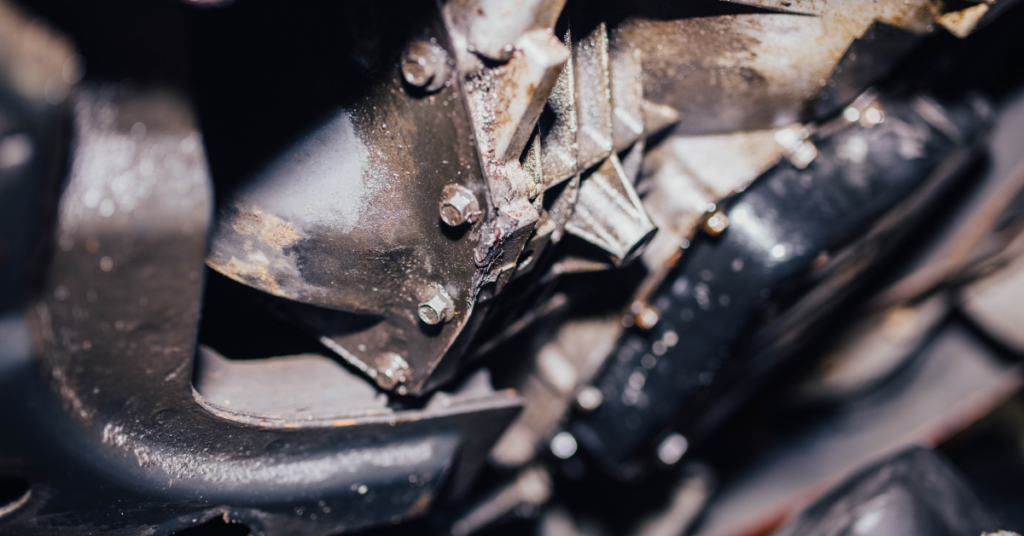
The P0420 Dodge code in a vehicle is related to the catalytic converter system. It indicates a problem with the efficiency of the catalytic converter, which plays a crucial role in reducing vehicle emissions.
If you have encountered this error code, it is important to address the issue promptly to prevent further damage to your vehicle and ensure compliance with emission regulations.
In this article, we will discuss the possible causes of the P0420 code in Dodge vehicles and explore potential solutions.
Contents
Understanding the Catalytic Converter System
Before delving into the specific causes of the P0420 code, let’s take a moment to understand the role of the catalytic converter in your Dodge vehicle.
The catalytic converter is an essential component of the exhaust system, responsible for reducing harmful emissions before they are released into the environment. It contains a catalyst that promotes chemical reactions to convert toxic gases into less harmful substances.
The catalytic converter works by using a combination of precious metals, such as platinum, palladium, and rhodium, to facilitate chemical reactions.
As the exhaust gases pass through the catalytic converter, these metals act as catalysts, causing the harmful pollutants, such as carbon monoxide, nitrogen oxides, and hydrocarbons, to undergo chemical reactions.
These reactions convert these pollutants into carbon dioxide, nitrogen, and water vapor, which are less harmful to the environment.
Causes of the P0420 Dodge Code
When the onboard diagnostic system detects that the catalytic converter’s efficiency is below a certain threshold, it triggers the P0420 code. This could be caused by several factors, including:
Catalytic Converter Failure
Over time, the catalytic converter may become clogged or damaged, leading to a decrease in its efficiency. This can be caused by engine misfires, oil or coolant contamination, or physical damage to the converter.
Engine misfires can introduce unburned fuel into the exhaust system, which can cause the catalytic converter to overheat and degrade.
Oil or coolant contamination can occur if there is a leak in the engine or coolant system, causing these substances to enter the exhaust system and coat the catalytic converter, reducing its effectiveness.
Physical damage to the converter, such as dents or cracks, can disrupt the flow of exhaust gases and hinder the catalytic converter’s ability to convert pollutants.
Oxygen Sensor Malfunction
The oxygen sensors play a crucial role in monitoring the exhaust gases and providing feedback to the engine control module (ECM). If the oxygen sensors are not functioning correctly, it can lead to inaccurate readings and trigger the P0420 code.
A faulty oxygen sensor may not accurately measure the oxygen content in the exhaust gases, leading to incorrect fuel mixture adjustments by the ECM.
If the ECM receives incorrect feedback from the oxygen sensors, it may not be able to optimize the air-fuel ratio, which can result in an inefficient catalytic converter.
Exhaust Leaks

Any leaks in the exhaust system before the catalytic converter can introduce additional oxygen, disrupting the proper functioning of the catalytic converter. These leaks can be caused by damaged gaskets, loose connections, or holes in the exhaust pipes.
Damaged gaskets between the exhaust manifold and the engine block, as well as between different sections of the exhaust system, can allow exhaust gases to escape before reaching the catalytic converter.
Loose connections at the joints of the exhaust system can also cause leaks, allowing oxygen to enter the system and affecting the catalytic converter’s efficiency.
Holes in the exhaust pipes can create direct pathways for exhaust gases to bypass the catalytic converter, reducing its effectiveness.
Engine Misfires
A misfiring engine can produce an excessive amount of unburned fuel, which can overload the catalytic converter and cause it to fail prematurely. Misfires can be triggered by faulty spark plugs, ignition coils, or fuel injectors.
Faulty spark plugs can result in incomplete combustion, leading to unburned fuel being released into the exhaust system.
Malfunctioning ignition coils can cause irregular sparks, resulting in misfires and the release of unburned fuel into the exhaust system.
Defective fuel injectors can cause an imbalance in the fuel mixture, leading to misfires and increased levels of unburned fuel in the exhaust gases.
Diagnosing the P0420 Code
To diagnose the P0420 code accurately, it is recommended to use a diagnostic scanner or OBD-II (On-Board Diagnostic) tool. These tools can read the error code, provide live data from various sensors, and help pinpoint the underlying issue. Here are the steps to diagnose the problem:
Check for Additional Error Codes
It is essential to check if any other error codes accompany the P0420 code. Additional codes can provide valuable insights into other potential problems.
Other error codes related to the fuel system, oxygen sensors, or engine misfires may indicate contributing factors to the catalytic converter’s inefficiency.
Inspect the Catalytic Converter
Visually inspect the catalytic converter for any signs of physical damage, such as dents or leaks. Pay attention to the heat shield, as loose or damaged shields can cause rattling noises.
Look for any visible cracks, dents, or holes in the catalytic converter. These physical damages can impact its efficiency and require replacement.
Ensure that the heat shield, which is designed to protect the catalytic converter from excessive heat, is securely fastened and not causing any vibrations or rattling sounds.
Check the Oxygen Sensors
Test the oxygen sensors to ensure they are functioning correctly. This can be done by using a multimeter or an OBD-II scanner capable of reading sensor data.
Use a multimeter to measure the voltage output of the oxygen sensors. Compare the readings to the specifications provided by the manufacturer to determine if the sensors are operating within the acceptable range.
An OBD-II scanner can provide real-time data from the oxygen sensors, allowing you to monitor their performance and identify any abnormalities.
Inspect for Exhaust Leaks
Thoroughly inspect the exhaust system for any leaks or signs of damage. Use a smoke machine or soapy water to identify the source of any leaks.
Utilize a smoke machine to introduce smoke into the exhaust system and observe if there are any visible leaks. The smoke will escape through any cracks or holes, helping you pinpoint the location of the leak.
Alternatively, you can apply a solution of soapy water to the suspected areas and look for bubbles. The presence of bubbles indicates the presence of a leak.
Check for Engine Misfires

Perform a comprehensive examination of the ignition system, including spark plugs, ignition coils, and fuel injectors. Replace any faulty components and clear any existing misfire codes.
Inspect the spark plugs for signs of wear, such as electrode erosion or carbon buildup. Replace any damaged or worn-out spark plugs.
Test the ignition coils using an appropriate testing tool to ensure they are delivering a strong and consistent spark.
Check the fuel injectors for clogs or leaks. Clean or replace any injectors that are not functioning properly.
Resolving the P0420 Code
Understanding the P0430 code in your Dodge unravels a narrative that echoes through the automotive landscape, where a catalytic converter faces challenges transcending specific brands.
Once the underlying cause of the P0420 code has been identified, appropriate actions can be taken to resolve the issue. Here are some potential solutions:
Catalytic Converter Replacement
If the catalytic converter is severely damaged or clogged, it may need to be replaced. Consult with a qualified mechanic to determine the best course of action and ensure compliance with local regulations.
A qualified mechanic will assess the condition of the catalytic converter and recommend a suitable replacement if necessary. Ensure that the new catalytic converter meets the specifications and requirements for your Dodge vehicle.
It is important to comply with local emission regulations when replacing the catalytic converter to avoid any legal issues.
Oxygen Sensor Replacement
Faulty oxygen sensors should be replaced to restore accurate readings and prevent future P0420 codes. It is recommended to replace all sensors simultaneously, as they often have similar lifespans.
Consult with a mechanic to determine the appropriate oxygen sensors for your Dodge vehicle. There may be multiple sensors, including upstream and downstream sensors, which should be replaced together.
Ensure that the new oxygen sensors are compatible with your vehicle’s make, model, and year. Follow the manufacturer’s guidelines for proper installation.
Repair Exhaust Leaks
Any leaks in the exhaust system should be repaired promptly to maintain the proper functioning of the catalytic converter. This may involve replacing damaged gaskets, tightening loose connections, or patching holes in the pipes.
Identify the source of the exhaust leak and replace any damaged gaskets or seals. Ensure that the new gaskets or seals are of high quality to ensure a proper seal.
Tighten any loose connections in the exhaust system, such as clamps or bolts. Use the appropriate tools to ensure a secure and leak-free connection.
If there are holes in the exhaust pipes, consider patching them with suitable materials or replacing the affected pipes.
Address Engine Misfires
Repair or replace any components causing engine misfires, such as spark plugs, ignition coils, or fuel injectors. Regular maintenance and timely repairs can prevent further damage to the catalytic converter.
Replace any faulty spark plugs with new ones that meet the manufacturer’s specifications. Ensure that the spark plugs are properly gapped and tightened.
If the ignition coils are malfunctioning, replace them with high-quality replacements that match the original specifications. Follow the manufacturer’s instructions for installation.
Clean or replace any clogged or leaking fuel injectors to ensure proper fuel delivery to the engine. Consult with a mechanic for professional assistance if needed.
Clear Error Codes
After addressing the underlying issues, use a diagnostic scanner or OBD-II tool to clear the error codes and ensure that the problem has been resolved. This will also enable you to monitor the vehicle’s performance and detect any recurring issues.
Connect the diagnostic scanner or OBD-II tool to the vehicle’s onboard diagnostic port.
Follow the manufacturer’s instructions for accessing the error code clearing function.
Clear the P0420 code and any other related codes that were present.
Monitor the vehicle’s performance and check for any new error codes that may indicate unresolved issues.
Conclusion
The P0420 code in a Dodge vehicle indicates a problem with the catalytic converter system’s efficiency. It is crucial to address this issue promptly to ensure compliance with emission regulations and prevent further damage to your vehicle.
By diagnosing the problem accurately and taking appropriate actions, such as replacing the catalytic converter or oxygen sensors, repairing exhaust leaks, and addressing engine misfires, you can resolve the P0420 code and restore your Dodge vehicle’s optimal performance.
Delve into the intricacies of the P0420 code for your Dodge, and you might realize it’s not a lone-wolf issue. Unveiling its counterparts, like the P0430 code in Dodge, broadens your diagnostic horizons.
Consult with a qualified mechanic for professional guidance and assistance throughout the process.
FAQ
Q: What does the P0420 code in a Dodge vehicle indicate?
The P0420 code indicates a problem with the efficiency of the catalytic converter system in a Dodge vehicle.
Q: What is the role of the catalytic converter in a Dodge vehicle?
The catalytic converter is responsible for reducing harmful emissions in a Dodge vehicle by converting toxic gases into less harmful substances.
Q: What are the possible causes of the P0420 code in Dodge vehicles?
The possible causes of the P0420 code include catalytic converter failure, oxygen sensor malfunction, exhaust leaks, and engine misfires.
Q: How can the P0420 code in a Dodge vehicle be diagnosed?
A: The P0420 code can be diagnosed by checking for additional error codes, inspecting the catalytic converter, testing the oxygen sensors, inspecting for exhaust leaks, and checking for engine misfires.



